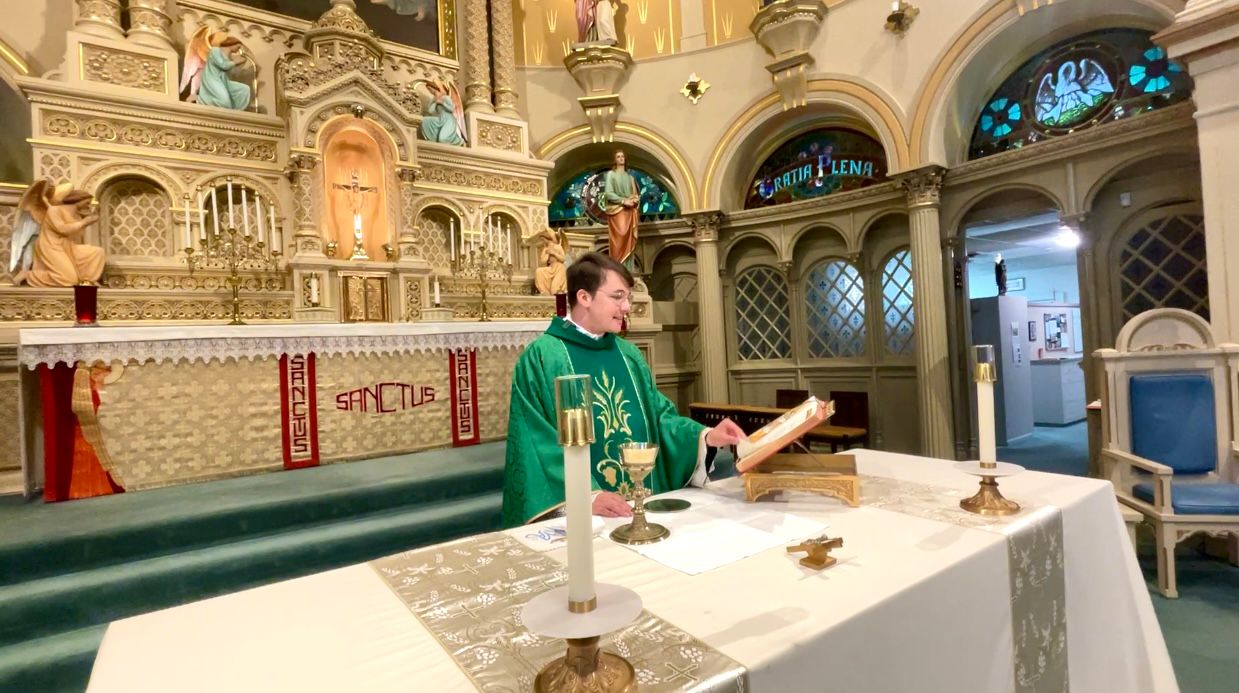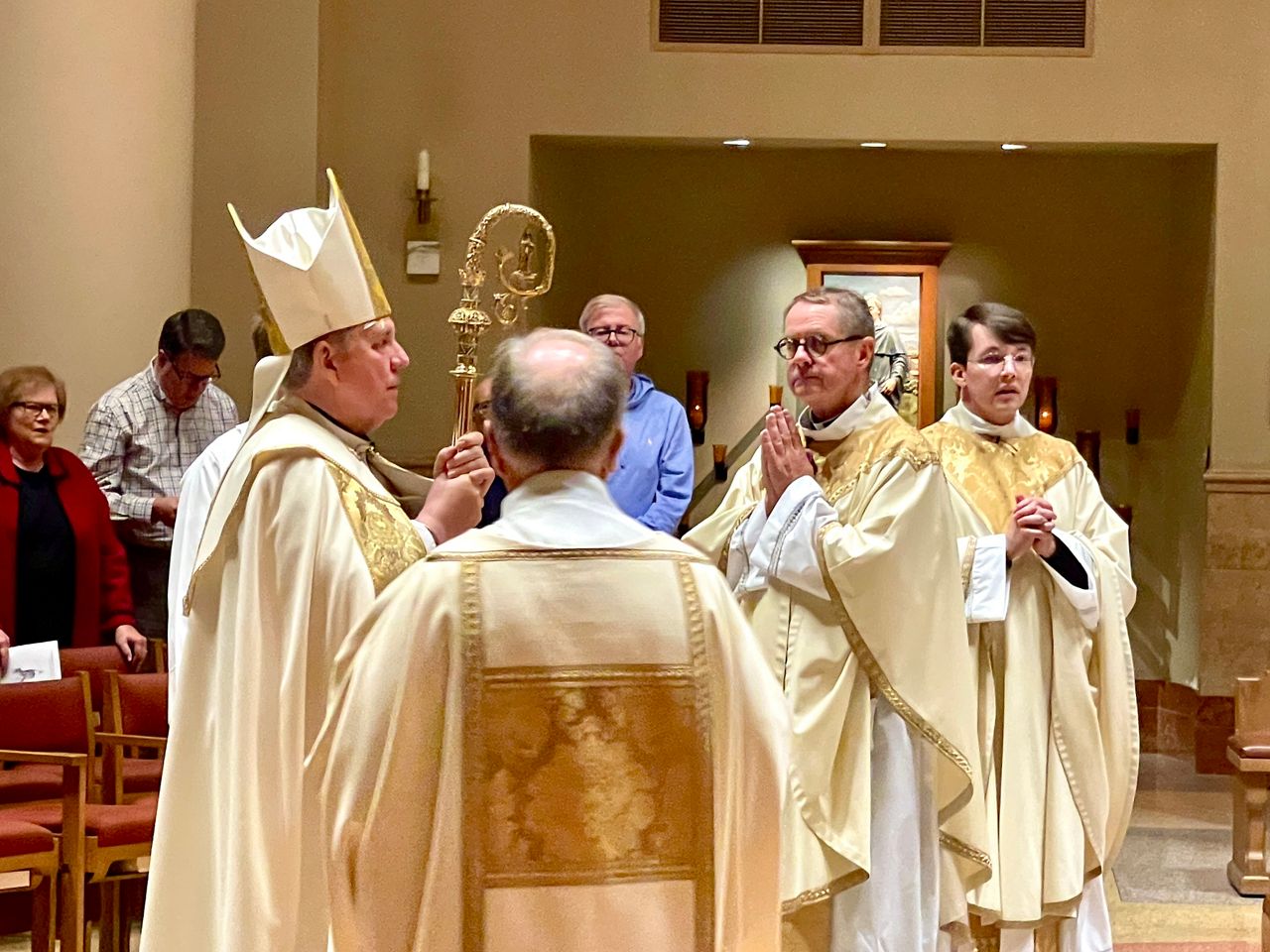MILWAUKEE — Due to a green card processing backlog, the Archdiocese of Milwaukee is at risk of losing 24 internationally-born priests.
Those priests will now have to leave the U.S. for a year, when their five-year temporary work visas expire. Then, they must reapply for one.
Father Carlos Londono moved to Milwaukee from Colombia 10 years ago to pursue his goal of becoming a Catholic priest. He’s now one of the associate pastors for the Family of Five Parishes in Milwaukee.
“Most of the meaningful relationships that I have in my life right now are here,” he said.
He said he’s heartbroken to have to leave the city and parish that he has long considered home. He said he has not gotten his green card yet, due to a change in immigration policy causing a delay for religious workers.

His visa expires in Sept. 2025, so he has to leave the country for a year. Instead of going back to Colombia, he was able to earn an opportunity studying in Rome.
He'll head to Italy next year, but he’s worried about other priests.
“Many priests will have to go back to their home countries, and for some of them, it is a huge risk, because some of them come from countries where being a priest is not safe,” he said.
Father Tim Kitzke has been a priest with the Archdiocese of Milwaukee for more than 35 years. He is currently the pastor of Cathedral of St. John the Evangelist downtown, which is the seat of the archdiocese. Kitzke also serves as the vicar of urban ministry.

He said the Archdiocese of Milwaukee has been working to get in touch with U.S. lawmakers and wrote a letter to the federal government to try to get this challenge resolved. He said it will be detrimental for parishes to lose their faith leaders.
“There is such a backlog with green cards that these guys can’t get their legal status, so they have to leave the country for one year,” Kitzke said. “We’d like it to go down to 30 days because at least that way the flow of their community work will not be interrupted.”
This affects religious workers of all denominations across the country. Londono and the Archdiocese of Milwaukee said it could lead to a shortage of priests and discourage some people from pursing the ministry.
“I know that other dioceses in the country heavily rely on help from international priests,” Londono said. “Our own archdiocese will suffer from a shortage of hands that could be here otherwise doing good.”

The Archdiocese of Milwaukee released a statement that reads, in-part:
“In the past, foreign-born priests would come to the U.S. with a five-year religious worker visa and, while here, apply for a work immigration visa which would take one year to receive. They would not have to return to their home country at all.
“However, in April 2023, the U.S. State Department implemented a change to its interpretation of a federal immigration law. As a result, the work immigration visa that used to take one year now takes more than five years to get. Even if foreign-born priests immediately apply for the new visa upon arrival, they would have to return to their home country for more than a year waiting for it.
“Their absence would create a hardship for dioceses having to operate with fewer priests, including an interruption in outreach ministries such as visits to ailing people in hospitals and nursing homes.
“In his letter to U.S. Senators Tammy Baldwin and Ron Johnson, and Representatives Scott Fitzgerald, Glenn Grothman, Gwen Moore and Bryan Steil, Archbishop Listecki noted that the archdiocese also has made a considerable financial investment to maintain its foreign-born priests’ ministry presence, including the costs related to the U.S. immigration process. Further financial investment will be necessary for each priest who is required to return to his native country for a year, before returning to Archdiocese of Milwaukee.
“Priests affected by the visa change come from a wide range of countries, including some where the political situation is not safe enough for them to return there when they are forced to leave their ministry.
“The visa change also impacts foreign-born religious brothers and sisters who serve the Catholic Church and affects other faiths with foreign-born clergy. Catholic bishops throughout Wisconsin and the U.S. are also currently contacting legislators about this urgent issue.
“The United States Conference of Catholic Bishops (USCCB) initiated an interfaith letter last year that offered recommendations to address this problem, such as shortening the length of time that a religious worker is required to be outside the United States before returning on another religious worker visa.”



